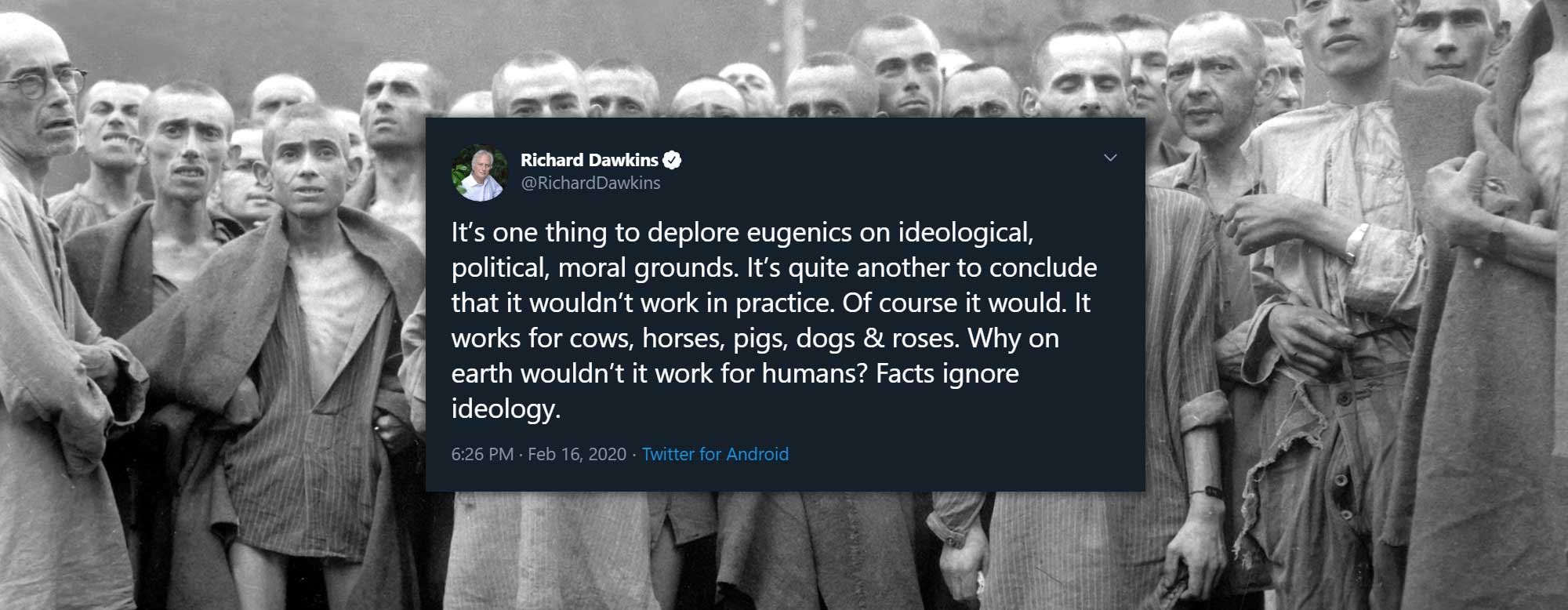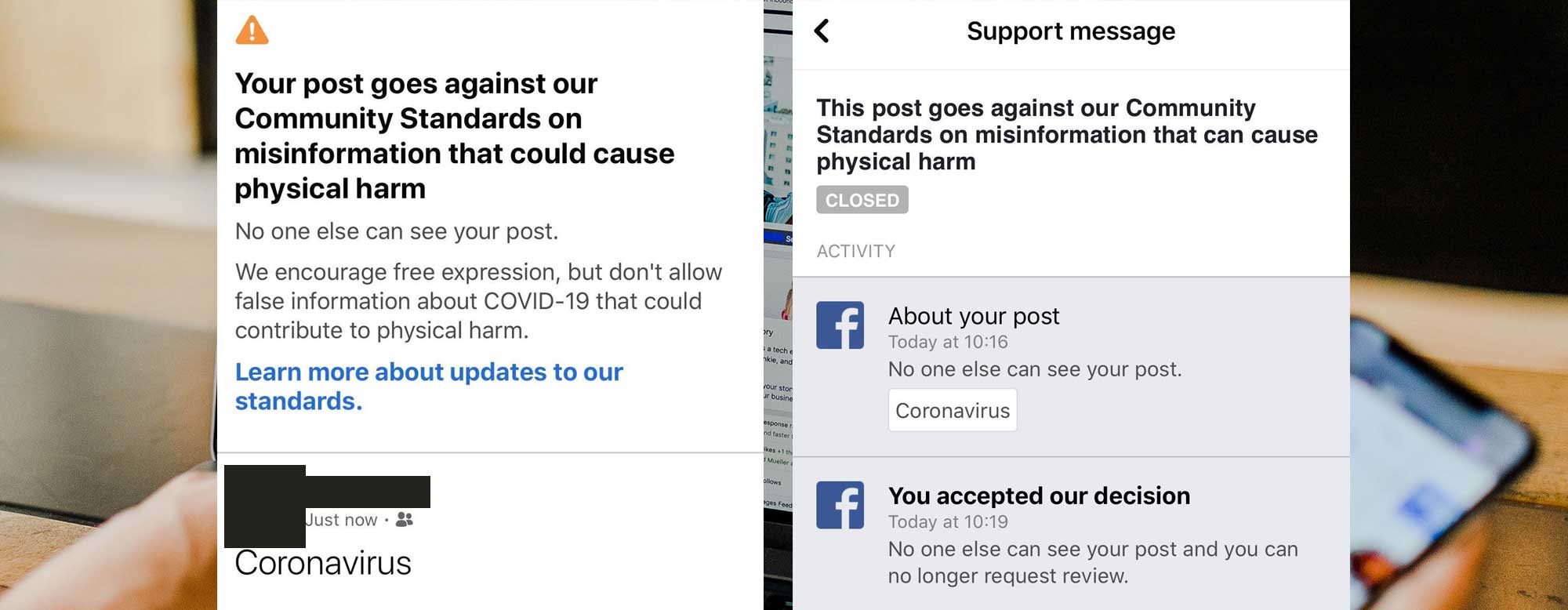Atheist Richard Dawkins has been slammed on social media after suggesting that while a eugenics policy would be “bad”, it would “work” to improve the human race.
On Sunday, Dawkins tweeted: “It’s one thing to deplore eugenics on ideological, political, moral grounds. It’s quite another to conclude that it wouldn’t work in practice. Of course it would. It works for cows, horses, pigs, dogs & roses. Why on earth wouldn’t it work for humans. Facts ignore ideology.”
The tweet quickly attracted more than 8,000 responses, many scolding the outspoken atheist for suggesting a practice adopted by Nazi Germany would “work”.
Eight hours later Dawkins was forced to follow up the claim with further clarification, tweeting: “For those determined to miss the point, I deplore the idea of a eugenic policy. I simply said deploring it doesn’t mean it wouldn’t work. Just as we breed cows to yield more milk, we could breed humans to run faster or jump higher. But heaven forbid we should do it.”
For those determined to miss the point, I deplore the idea of a eugenic policy. I simply said deploring it doesn’t mean it wouldn’t work. Just as we breed cows to yield more milk, we could breed humans to run faster or jump higher. But heaven forbid that we should do it.
— Richard Dawkins (@RichardDawkins) February 16, 2020
Heaven forbid we should do it? Eugenics is “bad” and “deplorable”? But, according to what moral standard? It’s at this point that the atheist becomes undone. Here’s why:
If the atheist believes there is no God, then ultimately we’re nothing more than the unintentional chemical by-product of time and chance working on matter. And if that’s the case, then what one chemical does to another chemical is morally irrelevant.
The atheist may appeal to the “greater good of society”, but in doing so he’s still begging the question. What one chemical does to a larger collection of chemicals is also morally irrelevant. That’s because, according to the atheist, human action and behaviour is nothing more than the result of atomic motion in the brain obeying the fixed laws of chemistry.
So, by what moral standard does Dawkins deem eugenics “bad” and “deplorable”?
Douglas Wilson put it this way: “If there is no God, then the difference between your thoughts and mine correspond to the difference between shaking up a bottle of Mountain Dew and a bottle of Dr Pepper. You simply fizz atheistically and I fizz theistically.”
He continued, “This means that you don’t hold to atheism because it’s true, but rather because of a series of chemical reactions. Morality, tragedy, and sorrow are equally evanescent. They are all empty sensations created by the chemical reactions of the brain, in turn, created by too much pizza the night before.
“If there is no God, then all abstractions are chemical epiphenomena, like swamp gas over fetid water. This means that we have no reason to assign truth and falsity to the chemical fizz we call reasoning or right and wrong to the irrational reaction we call morality. If no God, mankind is a set of bi-pedal carbon units of mostly water. And nothing else,” he added.
So, while Dawkins may attempt to water-down his assertion by labelling eugenics “bad” and “deplorable”, in doing so, he now finds himself at odds with his self-professed atheism. But then again, consistency has never been a characteristic of atheism.
Twitter reacts:
So unacceptable for Richard Dawkins to tweet about eugenics without clearly condemning it. Dawkins is *supposedly* one of our exemplars of humanism & science outreach. Yet today he's given every manner of passive and active bigot an opening to "consider" persecution on steroids. https://t.co/jycoxZQJFP
— Greg Epstein (@gregmepstein) February 16, 2020
What's "heaven", and where does it's authority to forbid policy come from?
— Dave Pellowe 🇦🇺 (@DavePellowe) February 17, 2020
You absolute pin-headed simpleton. It doesn't work in practice because too many of the goals turn out to be arbitrary fantasies, and too many of those fantasies are the pet projects of abusive bigots who fuck up any civilization they get their hands on. Are you new here? Christ.
— Scott Lynch (@scottlynch78) February 16, 2020
There’s still time to delete this one, buddy.
— bodthony postano (@theneedledrop) February 16, 2020
I have literally never seen an argument against eugenics that hinges on the idea of whether or not it "would work." The issue is what would it mean to say that eugenics "works," which you conveniently have not defined. Care to elaborate on what a "working" model of eugenics is?
— Rani "Laura Palmer Eldritch" Baker (@destroyed4com4t) February 16, 2020
Eugenics wouldn’t work because it gives people like you the opportunity to erase people like me. We deserve better. pic.twitter.com/zzHBOfUaTR
— Ophelia Brown (@opheliajcbrown) February 16, 2020
So it’s time for SMART eugenics to be done by the right elites on the rest of society?
The right kind of eugenics hasn’t been tried yet?
Is this the discussion you’re attempting to start?
— Brian Cates // Digital Soldier for Flynn ⭐️ ⭐️ ⭐️ (@drawandstrike) February 16, 2020
do you really want to argue that eugenics would have positive effects by citing dogs, the creatures we've bred so poorly that some breeds can't naturally give birth.
— trek'd out ride (@faciliheir) February 16, 2020
Tell me more about how it’s working for dogs bb pic.twitter.com/MlJr41TI8B
— Katie (@ZiziFothSi) February 16, 2020
While Richard Dawkins is a noted biologist, his science on eugenics is bad. We turned magnificent wolves into pure breed dogs with severe genetic defects causing joint and heart problems and cancer. In fact, many Cavalier spaniels develop mitral valve and neurological disorders.
— Eugene Gu, MD (@eugenegu) February 16, 2020
Eugenics is the "science" of breeding to increase "desirable genetic traits".
We breed roses for their color and smell.
Please… tell us… what do you consider to be "desirable genetic traits" in humans?
— Pé Resists (@4everNeverTrump) February 16, 2020
This eugenics crap is so dangerous. In the US it lead to forced sterilizations of women in the South — sometimes against their wills, often without their knowledge — that became so common that they came to be referred to as “Mississippi appendectomies.” https://t.co/TKFQGFc0dL
— Charles M. Blow (@CharlesMBlow) February 16, 2020


















